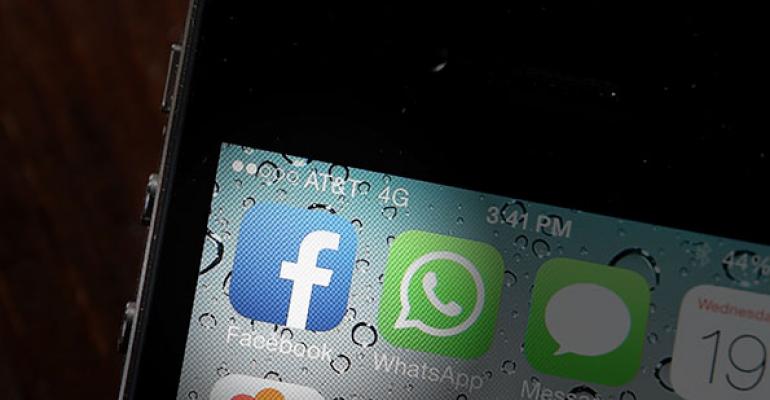Restaurant brands over the past five years have expanded the use of social media to go well beyond the one-way marketing messages that populated it in the early days.
And each of the platforms has produced opportunities outside the marketing functions:
• Facebook has provided a tool for franchisees to localize their brand and build their neighborhood presence.
• Instagram offers companies a place to recruit potential employees and provide glimpses into how they might find a company where they would like to work.
• Twitter has become a place where restaurants can intercept complaints and provide enhanced customer service.
While restaurant marketers readily embraced Web 2.0’s interconnectedness and social aspects, the social media platforms that era birthed in the past 10 years have started to provide tools crucial to restaurant operations.
The growing audience in social media provides a landscape for the restaurant companies to expand their effectiveness and reach. Facebook, for example, at the end of this year’s second quarter said it had 185 million active users in the United States. And with photo-centric Instagram, which Facebook also owns, the two social-media platforms captured about 27 percent of U.S. smartphone users’ mobile time, the company said.
Nation’s Restaurant News talked with several industry leaders and outside consultants about the newer and effective uses of social media platforms in the restaurant industry.
Using Facebook to increase reach
Online marketing firm HubShout recently surveyed 450 people about what mobile users look for in a business's website and 94 percent said they had used their smartphones to search for a business at some point. And nearly 61 percent of them used their phones to look up businesses frequently, if not daily.
Restaurants topped the list of businesses for which they used mobile search, clocking in at 90 percent of the users. Entertainment options like movies and events came in a distant second at 64 percent.
Jill McFarland, who until recently oversaw social strategy at Applebee’s Neighborhood Bar & Grill and is owner of the Kansas City, Mo.-based Stellar Digital Marketing consultancy, said many large restaurant brands are creating their own smartphone apps, including Taco Bell, Panera Bread and Starbucks.
That provides immediate affinity, she said, once users put an app on their smart phone and use it for payment.
Starbucks is the leader in this area, seeing 20 percent of transactions coming from the mobile app and $9 million per week, McFarland noted.

“You’re not going to delete that app from your phone, because it has currency on it,” McFarland said, adding that Panera’s web presence is also mobile.
“Most of us don’t have budgets like Starbucks or Panera to have in-house technology teams building these tech tools,” McFarland noted, “but that’s OK.”
Using a franchise organizations familiarity with the local markets and the reach on platforms like Facebook, brands can increase their ability to rise in smartphone search rankings.
Mobile is important because customers are increasingly using their smartphones to find locations, read menus, look over dining reviews and to make reservations, she said.
Brands can help franchisees make sure local searches are showing up correctly, McFarland noted.
“You need to make sure your addresses are accurate and consistent across properties,” she said. “There may be conventions that your customers are calling restaurant, and you are calling it something else.” She said some users might search for a restaurant location on a certain street rather than a designated neighborhood.

“At Applebee’s, we had a Facebook page for every single restaurant,” told a recent Brand Localization Summit in Dallas that was sponsored by retail engagement firm Two West. “The reason for that is that if you don’t own those pages and somebody checks in at that location and they can’t find, they might create their own. It also creates a lot of duplicates.” Some third-party companies are available to help claim pages and make sure the longitude and latitude are accurate, she added.
Restaurants need to optimize their local Facebook pages for search, she said. Some ways to enhance that is to publish localized content on Facebook local pages, McFarland said.
“At Applebee’s, our franchisees were highly engaged with local pages, and that made a difference,” she explained.
The parent DineEquity brand’s social-media marketing arm helped the local franchisees by providing helpful suggestions and items they could local and post, such as for Applebee’s Monday Night Burger Night. The company provided photos and suggested posts that accommodated the local franchisees’ varying prices and times for the promotion.
“We created franchisee kits for each campaign that we launched with virtual assets,” which produced consistency with branding but allow the local franchisee flexibility, she said.
Contact Ron Ruggless at [email protected].
Follow him on Twitter: @RonRuggless





